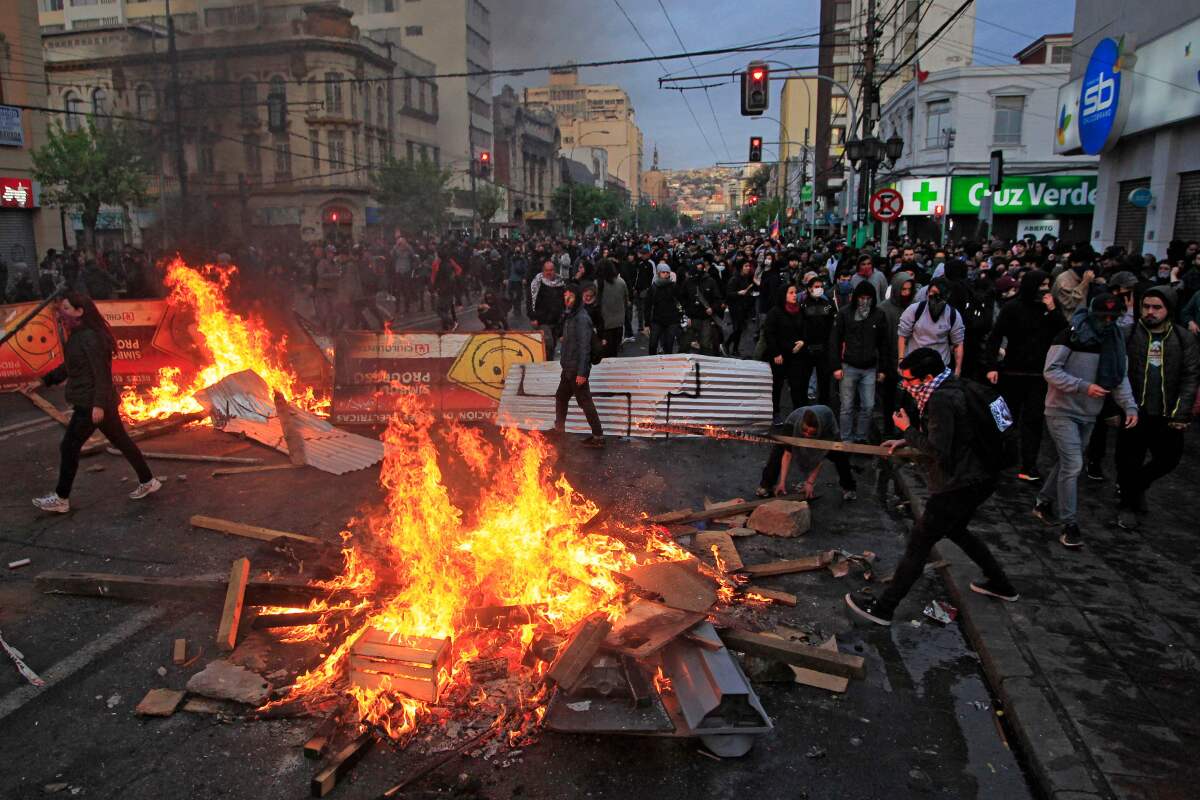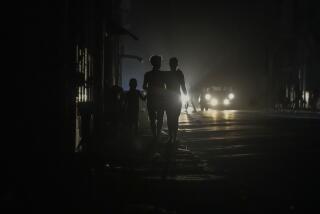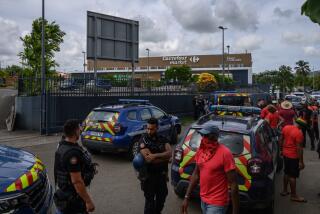Middle school students started a movement that has paralyzed Chile’s capital

- Share via
SANTIAGO, Chile — The Chilean government declared a curfew Saturday in the capital after protests against public transport fare hikes led to looting and arson attacks that paralyzed this city of 7 million.
The decision to call a curfew was regarded as unprecedented during times of democratic governance in the South American nation.
President Sebastian Piñera declared a state of emergency on Saturday, a move that granted the Army control of security and the power to restrict free assembly.
“We invite all citizens to return to their homes,” said Gen. Javier Iturriaga, appointed by Piñera to head the response to the crisis.
The curfew, of indeterminate length, requires people to be off the streets from 10 p.m. to 7 a.m.
Preceding the announcement was a tumultuous day in which more than 100 Chilean soldiers were deployed across the iconic Plaza Baquedano, traditional site for Chileans to celebrate sporting triumphs.
The images of soldiers in the streets brought back dark memories for many of the military junta of Gen. Augusto Pinochet, who ruled the nation between 1973 and 1990.
The protests began this week as a social media campaign by middle school students who called on commuters to jump subway turnstiles in rejection of the transit fare hikes, announced on Oct. 6. The protests soon accelerated.
The latest increase pushed rush-hour subway tickets to the equivalent of $1.20, among the highest fares in Latin America.
Chile, often portrayed as a Latin American economic success story, is a nation where the monthly minimum wage is about $422 and unemployment tops 7%, despite promises of renewed prosperity voiced by Piñera during his 2017 election campaign.
On Saturday, Piñera announced the suspension of the fare hikes in an attempt to mollify the protesters.
On Friday, however, managers of Santiago’s subway network — reacting to protests and violence — suspended service system-wide for the first time since the metro’s creation 44 years ago. On Saturday, looters also sacked supermarkets in the capital.
After the torching of five buses in downtown Santiago, bus service was also suspended, leaving thousands of people in the streets.
By Saturday the protests had resulted in damage to 79 subway stations, at a loss of some $200 million, the torching of 22 buses, and the arrests of more than 300 people, authorities said. According to government reports, 156 police and 11 civilians were injured.
Poblete is a special correspondent.
More to Read
Sign up for Essential California
The most important California stories and recommendations in your inbox every morning.
You may occasionally receive promotional content from the Los Angeles Times.










